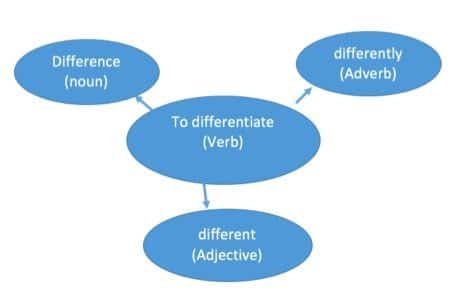Top Tips for Preparing for the Cambridge First Use of English Exam Questions
The Use of English questions in Paper 1 tend to be the part that students have most difficulty with. Why is that? Well, although exam technique plays an important part in the exam, you still need to have knowledge of the grammar and vocabulary that you will be tested on in the Cambridge First.
At Atlas we not only teach our students the right techniques to do each part of the FCE exam, but we also really encourage our students to improve the range and accuracy with which you recognise and use grammar structures and vocabulary. Here are some of our favourite tips for students:
A. Build your vocabulary using flashcards
One of the most effective ways of remembering vocabulary is by using flashcards. What are flashcards? These are usually small cards that contain the vocabulary on one side, and a sentence with a missing gap, a definition or a translation on the other side of the card. For example:

With these flashcards, you can test yourself whenever and wherever you are, whether it be on the bus or even while having your lunch.
You can also make your own cards online with a great website and app called quizlet. Quizlet even has a bank of ready made flashcards that already focus on the Cambridge First:
https://quizlet.com/69138719/cambridge-complete-first-unit-1-wordlist-flash-cards
B. Building word families
The word formation part of the exam can be tricky because you may not know the change word that is needed, or you may think it’s a word that is similar to a word in your own language, but ends up not being the same.
So, what we suggest here in Atlas is to build word families of the new words that you encounter, think about the different word forms. That is, think about what the verb, noun, adjective and adverb form is… if they exist in the first place.
Here is an example.

Extra tip:
Sometimes you will be asked to make an internal word change instead of adding a prefix or suffix. Here are a few of the more common ones that you may be asked to change:
- Long – Length
- Wide – Width
- Strong – Strength
- Success – Succeed
- Advice – Advise
- High – Height
- Deep – Depth
- Speak – Speech
- Prove – Proof
C. Know your grammar!
In the First, you will be mostly tested on the grammar that is required at an upper-intermediate (B2) level. If you go into the exam without having completed a full course at an upper-intermediate level, you will have difficulties getting a high mark in the exam.
That’s why at Atlas we usually recommend you to do a full B2 course before doing an exam class.
Here are grammatical features that you may get tested on in the exam:
- Adjectives and adverbs
- Future continuous
- Future perfect
- Future perfect continuous
- Mixed conditionals
- Modals – can’t have, needn’t have
- Modals of deduction and speculation
- Narrative tenses
- Passives
- Past perfect
- Past perfect continuous
- Phrasal verbs, extended
- Relative clauses
- Reported speech
- Will and going to, for prediction
- Wish
- Would expressing habits, in the past
(List taken from “Exam English – Grammar to study at each CEF level”
: http://www.examenglish.com/CEFR/cefr_grammar.htm)
D. The tricky key word transformation
As we’ve mentioned already, you’ll need to know what grammar you’re being tested on, but you’ll also need to get enough practice and work on your techniques needed to do each part properly.
For Part 4, you must always remember that you need to make at least two changes to form the correct sentence but you mustn’t change the key word.
Let’s look at an example below:
I haven´t seen Sven for five years.
LAST
It´s five years ___________________ Sven
If you guessed the answer (since I last saw) correct, then congratulations. But let’s think what changes were made.
- For – changed to – since
- Present perfect (I haven’t seen) – changed to – Past simple (I last saw)
- Negative sentence (I haven’t seen) – changed to – Positive sentence (I last saw)
E. Improve your Open/Cloze!
A mistake that some people make when trying to complete the Use of English Part 2 in the paper is that they write in words that would never be needed in that part.
Here is a list of the types of function words and some examples of each one.
| Function words |
Examples |
| Pronouns | You, him, her, etc. |
| Relative pronouns | Which, that, where, who, etc. |
| Reflexive pronouns | Myself, yourself, itself, ourselves, etc. |
| Articles | A, an, the |
| Determiners/quantifiers | Much, many, fewer, all, enough |
| Linking words | But, however, despite, as etc |
| Time clauses | When, while, then etc |
| Prepositional phrases | Apply for, All of a sudden, in proximity, etc |
| Phrasal verbs | Get along, get over, get on, etc |
| Collocations | Take sbd for granted, take responsibility, take a break, etc. |
If you find these tips useful, make sure to subscribe to our blog and to check out our blog posts on how to prepare for the Cambridge First Speaking and Writing papers.
To score well in the Use of english parts of the Cambridge English First exam you will need a good B2 level of language awareness. Work on building up the range of grammar patterns you understand and can comfortably use. But also practise as much as possible before the exam. Remember, practice makes perfect.
